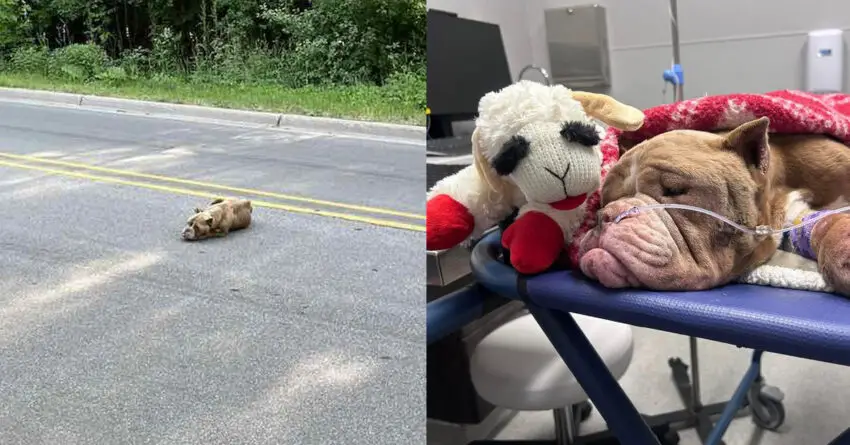A dog named Prince is searching for a forever home after his owner was forced to give him up due to new housing restrictions. This story highlights an increasing problem faced by many pet owners, particularly renters, who are unable to find pet-friendly housing. Prince, a three-year-old Australian Shepherd mix, had been with his owner since he was a puppy, but the unfortunate circumstances left his owner with no choice but to give him up. This article explores the challenges of finding pet-friendly housing, Prince’s personality and needs, and the broader implications of housing restrictions on pet ownership.

Heartbreaking Dog Surrendered Due to New Landlord’s ‘No Pets’ Policy
The Growing Challenge of Pet-Friendly Housing for Renters
Housing restrictions that limit or entirely ban pets are becoming an increasingly common problem for renters across the U.S. In the case of Prince, his owner was forced to make the heartbreaking decision to surrender him to a shelter because the new landlord did not allow pets. This is not an isolated incident, as many renters face the same dilemma.
Chris Browder, an Administrative Assistant and Technician at the Shelbyville/Shelby County Animal Shelter, where Prince now resides, told Newsweek that this is a growing trend. “This is a trend that is really picking up speed as renters find it nearly impossible to find a rental property where they can still be pet owners,” Browder said. The reasons why pets are often surrendered to shelters include moving, financial constraints, and lack of time. But more often than not, it comes down to landlords’ restrictions, which have become an almost insurmountable challenge for pet owners who are renters.
According to a survey conducted by Talker Research for Newsweek, 71 percent of Gen Z adults who don’t own pets cite housing restrictions as the primary reason. Even when landlords claim to allow pets, they often impose breed or size restrictions that exclude many dogs. Furthermore, studies have found that cheaper pet-friendly housing is more likely to come with additional pet fees, disproportionately impacting lower-income families.
Prince: Friendly, Smart, and Ready for His Forever Home
Despite the challenges Prince has faced, he remains a loving and eager-to-please dog who is ready for a new home. During a recent fall adoption event, Prince met with many potential adopters, showcasing his friendly personality and well-developed leash skills. Browder remarked that “he seemed to enjoy meeting new people, showcasing his friendly personality and impressive leash skills,” adding that he even showed off his “shake” skills to the crowd, proving that he is both smart and charming.
Although a little shy at first, Prince is affectionate and loves spending time with people, especially children. He is an active dog that would thrive with a family that enjoys outdoor activities like hiking in Indiana’s state parks, but also loves a cozy day at home. The shelter is committed to finding him the perfect match and will cover the cost of his neutering, vaccinations, microchip registration, and flea treatments. For families with other dogs, the shelter will arrange a meet-and-greet to ensure compatibility. Browder is confident that Prince deserves a loving home where he can feel safe and cherished.
The Impact of Housing Restrictions on Pets and Owners
Prince’s story sheds light on the growing issue of housing restrictions and their impact on both pets and owners. Many landlords either completely ban pets or impose restrictions on breeds and sizes that make it nearly impossible for many dogs to be accepted. This has led to a sharp rise in the number of pets being surrendered to shelters.
According to the 2021 study published in Frontiers in Veterinary Science, cheaper pet-friendly housing options are more likely to come with additional pet fees, creating a financial burden for renters, especially those from lower-income backgrounds. This makes it challenging for people who love their pets but struggle to find affordable housing that accommodates their furry family members.
Furthermore, this trend not only affects dogs but also cats and other pets, placing further strain on animal shelters that are already operating at capacity. Browder highlighted that while moving and financial constraints are among the top reasons pets end up in shelters, housing restrictions are a growing issue that is pushing more people to give up their beloved pets.
The Path Forward: Finding Solutions for Pet Owners and Landlords
While housing restrictions continue to rise, there are potential solutions that can benefit both landlords and pet owners. Landlords could consider offering more pet-friendly options, recognizing the demand for such accommodations and the fact that responsible pet owners are often willing to pay higher rents or additional deposits to keep their pets. In turn, this could create a win-win situation where landlords are able to meet market demands, and pet owners can keep their companions.
For now, Prince is still waiting for his forever home, but his story is a stark reminder of the challenges many pet owners face. Prince’s friendly demeanor, intelligence, and love for outdoor adventures make him a perfect companion for an active family. As more attention is brought to the issue of pet-friendly housing, we can hope that fewer pets like Prince will find themselves in shelters due to circumstances beyond their control.
If you’re interested in adopting Prince or learning more about how you can help animals in similar situations, reach out to the Shelbyville/Shelby County Animal Shelter. Prince, like so many other pets, deserves a loving home where he can thrive and be part of a family.






















